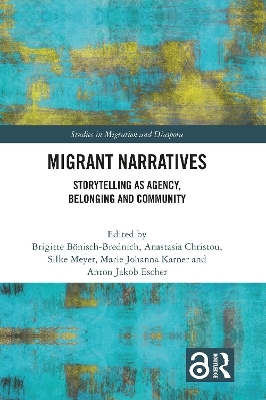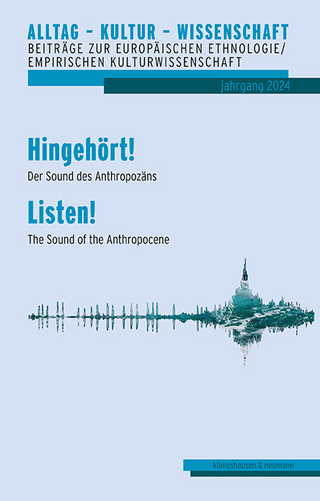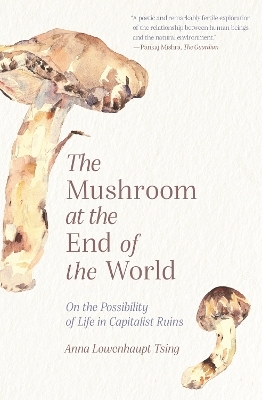
Migrant Narratives
Routledge (Verlag)
978-0-367-63745-3 (ISBN)
Driven by an agenda of deep listening, each chapter presents a narrative directly derived from qualitative research, an outline of the methodological framing as well as narrative analysis. Through close attention to the narrative, its performative aspects and its ruptures and silences, authors identify patterns and material in the fabric of such telling and retelling of stories that open up new perspectives on the migrant experience. This book develops a methodology of "dwelling with stories" that allows for sustained and slow interrogation of the migrant experience and the accompanying decisions that shape narratives around mobility across borders. Its structure is innovative by emphasising the migrant voice and reflecting on the scholars’ positionality, while also offering new theoretical contributions that will advance the field of narrative analysis.
The book will appeal to academics, students and practitioners in a wide range of subject areas within the humanities and social sciences, including anthropology, sociology, human geography, migration/refugee/diaspora studies and oral history.
Chapter 5, 6, 7 and 8 of this book are freely available as a downloadable Open Access PDF at http://www.taylorfrancis.com under a Creative Commons [Attribution-Non Commercial-No Derivatives (CC-BY-NC-ND)] 4.0 license.
Brigitte Bönisch-Brednich is Professor of Anthropology and Director of the Stout Research Centre for New Zealand Studies at Victoria University of Wellington, New Zealand. Her research interests are in migration, narrative inquiry, storytelling and ethnographic practice. She has published widely on these subjects. Her current project looks at migrant storytelling. Anastasia Christou is Professor of Sociology and Social Justice at Middlesex University, UK. She is also Senior Fellow of the Higher Education Academy, an academic activist, a trade unionist, feminist and anti-racist. An interdisciplinary critical scholar whose work is fully immersed in the humanities, social sciences and the arts in the pursuit of a public sociology which is relevant, meaningful and transformative, she extensively researches, publishes and teaches on issues of identity, emotion, inequality, intersectionality, ethics, decolonial and feminist pedagogies, social justice and exclusions as regards gender, class, sexuality, race and ethnicity in migrant, minority, youth and ageing groups, having engaged in multi-sited, multi-method and comparative ethnographic research in the US, UK, Denmark, Germany, Greece, Cyprus, France, Iceland, Switzerland, while recently engaged in collaborative research in the Middle East, Asia, Africa, as well as with communities in Israel and Palestine. Silke Meyer is Professor of European Ethnology at the University of Innsbruck, Austria where she also heads the Research Area ‘Cultural Encounters – Cultural Conflicts’. She researches and teaches on economic anthropology, migration and remittances as well as narrative analysis. Her publications include a monograph on The Indebted Self: Narrative Handling of Private Insolvency (2017) and an edited volume on Remittances as Social Practices and Agents of Change: The Future of Transnational Society (2023). Marie Johanna Karner is a postdoctoral researcher at the Institute of Geography at the Johannes Gutenberg University Mainz, Germany. Within her dissertation she studied neo-diasporic communities to understand the fundamental transformation of former ethnic groups. Apart from topics related to migration and diaspora, her research interests include urban utopias, the touristification of former colonial towns and cinematic experiences. In 2015, her diploma thesis on the transformation of the historic centre of Byblos/Jbeil (Lebanon) received a special mention within the Otto-Borst-Prize. In 2017, she was funded as a doctoral fellow at the Orient Institute Beirut (Lebanon). Anton Escher is Professor of Cultural Geography at the Johannes Gutenberg University Mainz, Germany. After obtaining his PhD at the University of Erlangen-Nürnberg in 1985, he qualified as professor in 1990 with a habilitation thesis. From 1998 to 2019 he was Managing Director of the Institute of Geography and from 2005 to 2019 Director of the Center for Intercultural Studies (ZIS). His research focuses are North Africa and the Middle East, the field of migration, historic towns and film geography.
1. Analysing migrant narratives as an ethnographic project: Academic representation as storytelling Part I: Scripted narratives – Continuities and ruptures 2. Narratives of absence: Making sense of loss and liminality in the post-war Bosnian diaspora 3. Home at last: Narrating community and belonging through retirement migration to Spain 4. Homecoming as exile? Experiences of rupture and belonging Part II: Agency – Resourceful victimhood 5. Female agency, resourceful victimhood and heroines in migrant narrative 6. "When you win, you are a German, when you lose, you are a foreigner": Claiming position beyond the meritocratic and discriminatory migration discourse 7."None of these are jokes, it’s just my life…": Migrant narratives and female agency in Shazia Mirza’s comedy Part III: Silences and voids in gendered narratives – What can and cannot be told 8. The Syrian taxi driver: Migrant narratives or narratives of a researcher? 9. Reluctant stories: Silences in women’s narratives of war and exile 10. Planting the colonial narrative: The migrant letters of James Taylor in Ceylon Part IV: Collective narratives – Stories as a way of doing community 11. The "Titanic legacy": Collective narratives as resources of diasporic communities 12. Migrant ethnography on YouTube: "GermanLifeStyle" and the German "refugee crisis" 13. The migrant storyteller: Mnemonic and narrative strategies in migrant stories
| Erscheinungsdatum | 05.12.2023 |
|---|---|
| Reihe/Serie | Studies in Migration and Diaspora |
| Zusatzinfo | 1 Line drawings, black and white; 4 Halftones, black and white; 5 Illustrations, black and white |
| Verlagsort | London |
| Sprache | englisch |
| Maße | 156 x 234 mm |
| Gewicht | 420 g |
| Themenwelt | Sozialwissenschaften ► Ethnologie |
| Sozialwissenschaften ► Soziologie | |
| ISBN-10 | 0-367-63745-6 / 0367637456 |
| ISBN-13 | 978-0-367-63745-3 / 9780367637453 |
| Zustand | Neuware |
| Haben Sie eine Frage zum Produkt? |
aus dem Bereich


